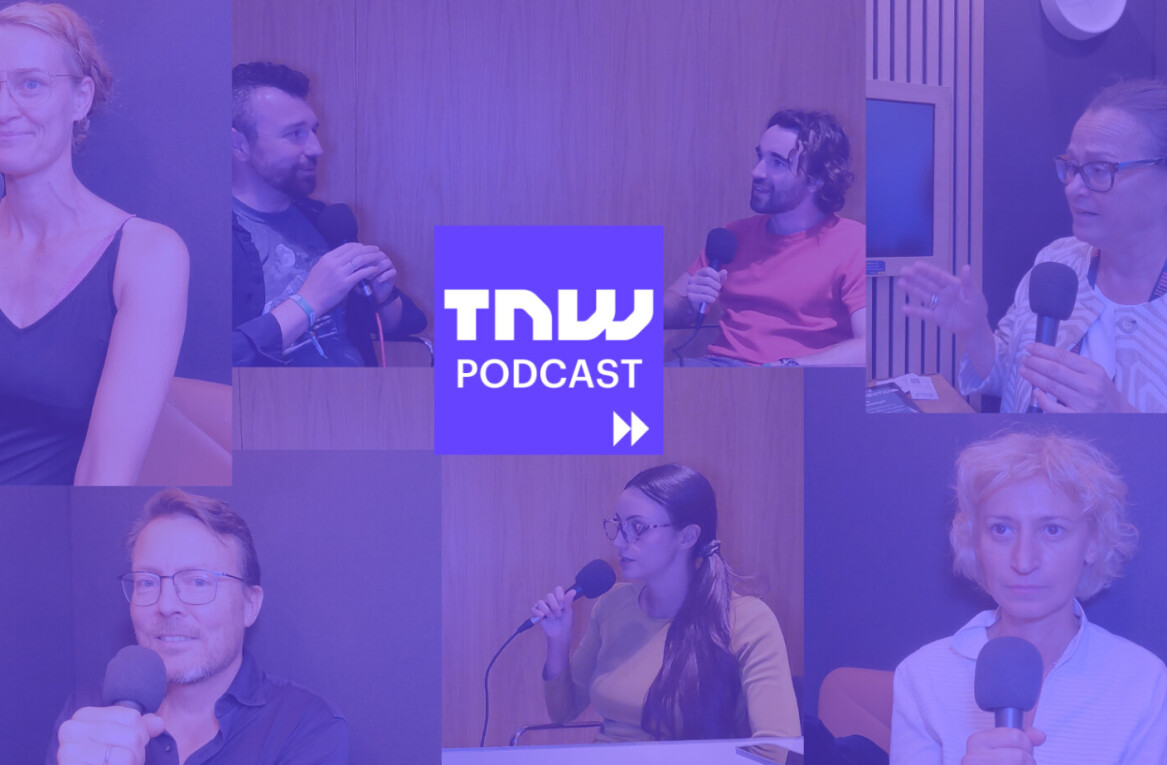![PlayMob brings ethical virtual goods to games [Interview]](https://img-cdn.tnwcdn.com/image?fit=1280%2C720&url=https%3A%2F%2Fcdn0.tnwcdn.com%2Fwp-content%2Fblogs.dir%2F1%2Ffiles%2F2011%2F09%2FJST11.jpg&signature=a8f62dc51ff54ec197a6d1c1dbf0cf46)
Back in August, we reported on the ten startups to emerge at Springboard, which is an intensive 13-week programme based at Cambridge University in England. The purpose of the annual Springboard programme is to provide seed capital, office space and a “smart-community” with mentors helping budding entrepreneurs to accelerate their businesses.
One of the companies to emerge from the programme was PlayMob, a company that’s setting out to help charities fund-raise through games with a platform that links virtual objects to good causes.
The Next Web caught up with PlayMob co-founder and CEO Jude Ower, to see where PlayMob came from, where it’s currently at and where it’s likely to go.
Meet PlayMob Founder, Jude Ower
“I have worked in gaming for 10 years”, says Jude. “Prior to launching PlayMob I worked with small game-developers creating games for training and education. My main role was in marketing but given that they were small companies, I worked on all aspects of production from sourcing clients to delivering products. Working in this way gave me a taste for small business and I knew I wanted to have my own one day”.
PlayMob is born…
PlayMob came to life in 2007, launching as a service-based business creating games with a focus on training and education. “We started to get interest from charities which made us look more into the social games and mobile space”, says Jude. “Through research and forward thinking, we picked this as the direction for the company, and rather than try to compete with the Zynga’s and PlayFish’s, I decided to concentrate on technology that benefits the games industry and helps all sorts of games do good. And also to increase engagement with the game-playing community”.
A key turning point in the company’s eventual pivot was GiverBoard, an idea which came about in March 2010 whilst Jude was at SXSW. It is what links charities to in-game virtual objects. “The show is hectic and full of social media”, says Jude of SXSW. “One morning I came up with the idea and decided to research it on my return. I spent some time talking to developers, charities and product specialists and by the end of 2010 I had a pretty clear plan on the technology”.
http://youtu.be/NhwFlFSieyc
PlayMob continued doing service-based projects to fund the business costs and in early 2011, the company brought an angel investor in and entered the Springboard programme in Cambridge, which helped fast-track the technology. “We had expertise from people who really know their stuff and did this all in a short space of time”, says Jude. “We did about 18 months work in 3 months at Springboard, so it was massively valuable to help catapult us forward and put us in front of VCs and angels”.
The startup secured £140k in funding, which is going towards technical and design skills, and getting its ‘minimum product’ developed. “Now we have traction on the platform we have opened a second round of funding to go towards scaling the business fast in 2011/2012”, says Jude. “The decision to change the business has been a good one and we hope to see fast and continuous success”.
PlayMob is primarily based in TechHub, a shared-working space in London’s East End aimed at companies, entrepreneurs and others involved in the tech industry. “We are all based between Techhub and Birmingham”, says Jude. “But the plan is to have everyone based in London by the end of the year and have one central office. We are looking for technical people, UX designers, system admin people, account managers and business development to join the team this year”.
At the moment, PlayMob is Caroline Howes and Daniela Neumann, who are head of operations and product marketing respectively. Then there’s a lead engineer, lead designer, one account manager, a supporting designer and a finance director. Oh, and they’ve just appointed entrepreneur and British gaming legend Ian Livingstone as Chairman.
But what exactly is PlayMob?
You may still be wondering exactly what the startup is all about. “It’s about revolutionizing giving”, says Jude. “PlayMob enables charities to fundraise online through existing games. Our core technology, GiverBoard, provides a free service for charities to raise money and exposure while allowing games to reach out to a whole new audience and engage with their players”.
In its first campaign with Per Blue – a mobile and social gaming platform – PlayMob raised $3,000 for SOS Children, those affected by droughts in North Kenya, and they are planning another 5 campaigns with other developers.
Players of the MMORPG game, Parallel Kingdom, purchase the ‘Soup Can Hat’, which is a limited edition in-game object, using virtual currency. The hat sells for 550 ‘food’, which equates to around $5.50, and is worn by the buyer’s in-game avatar. 80% of purchases are turned into real meal vouchers for SOS Children.
“We also have a campaign set up with Fat Bob Games and Special Effects, a charity making games accessible for those with disabilities”, says Jude. “If players buy an upgrade to the game a percentage will be donated to charity. This campaign is just waiting Apple’s approval so we are hoping they clear this soon as the funds go straight to the developer, then the developer donates the funds rather than it being a straight donation which Apple do not allow”.
Jude says she feels that PlayMob is trying to pull together a pretty fragmented industry, and there’s evidence elsewhere that this initiative might just have legs. “Games are raising money for charity, and charities are using social media”, she says. “But no one has created the connector that pulls this all together. A company in the US called Games that Give create mini viral games that generate revenue from brand sponsorship, so the more players play, the more the game can raise for charity. This company has just been acquired by Virtue, a social media agency in the US. This is proof there is movement and interest in the space already”.
Show me the money
Doing good things for good causes is all very well, but PlayMob isn’t a not-for-profit. So how can the company seek to drive revenue when it seems to be underpinned by an altruistic ethos? “Our platform is essentially an advertising platform and big brands can use this for doing their corporate social responsibility”, says Jude. “We are in discussions with brands at the moment but we need to have quite a few more games before we have the numbers to interest the brands. A typical scenario would be working with a big brand, where they sponsor a tree in a game, the player can then buy the tree for their game and a percentage goes to charity as well as the brand paying an advertising fee for every click/fan they receive”.
Before all the Starbucks and Coke’s of the world jump on the PlayMob bandwagon, how is it making money? “We have a few revenue streams”, says Jude. “Initially we take a cut on top of each object sold as an admin fee to cover the tech, hosting and money flow. Our other revenue streams further down the development cycle will be selling data analytical packages, brand advertising and sponsorship, running targeted marketing campaigns for the charity through our platform and then also premium services to support developers and charities to promote their campaigns”.
PlayMob, 12 months from now
PlayMob is gaining momentum, but where does Jude see the company being, say, 12 months from now? “We will be the central piece to the games industry, enabling giving across all games platforms”, she says. “We also want to be working with non-game partners such as Groupon and Four Square. Our plan is for our API to be used for transactions online and on land. Our platform being the enabler to allow giving to happen, while going about everyday life. Not asking donors to change behaviour, just carry on doing what they are doing but be more informed about their product and service choices and hope they choose options that give back too”.
We’ll be sure to revisit PlayMob a little further down the line to see how it’s progressing. Whether its pivot will pay off, only time will tell, but its early progress is certainly encouraging. “Even though the business has pivoted, it’s still a support role to the games industry”, says Jude. “But I now feel we have a much more compelling and sustainable offer which will not only scale fast and support the industry, but also have a positive social impact”.
Get the TNW newsletter
Get the most important tech news in your inbox each week.






